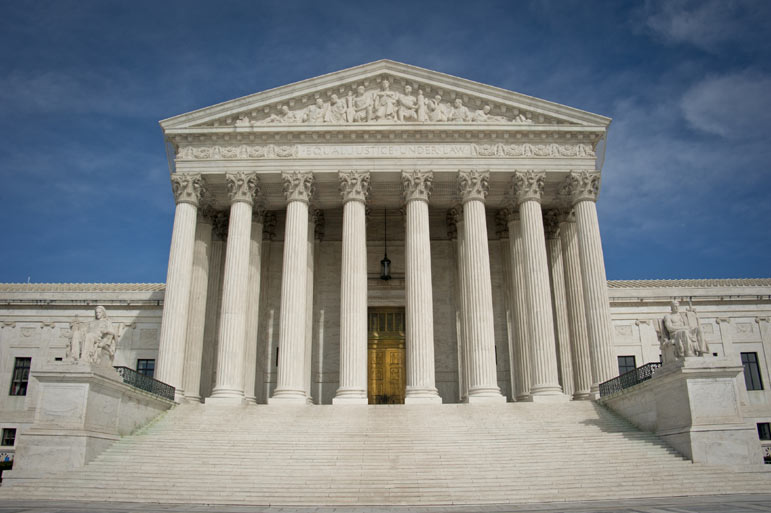
In the case, U.S. v. Cooley, justices held that tribal police on a reservation can arrest and search people who are not Native American when there is probable cause to suspect them of a federal or state crime.
The decision was unanimous, almost certainly for a quirky reason: The court's liberals favor tribal sovereignty on reservations and the court's conservatives favor expansive police power to stop and search.
Conservatives also hate throwing out convictions on procedural grounds.
The case began in 2016. Late one February night in Montana, a Crow reservation police officer noticed a truck pulled over on U.S. 212, a highway that runs through the reservation. Inside was Joshua James Cooley.
According to the officers, he had "watery, bloodshot eyes" and "appeared to be non-native."
The officer saw two semi-automatic rifles on the front seat. The officer ordered Cooley to get out of the truck, administered a pat-down search, and called for backup - a call that brought tribal, county, and federal Bureau of Indian Affairs officers to the scene.
Then, according to the arresting officer, he looked in the truck and saw in plain view a glass pipe and some methamphetamine. When the backup came, he saw more meth, also in plain view. (Yes, all police reports from stops like this sound a little doubtful when it comes to "plain view." But hey, we weren't there.) Cooley, who was not a member of any tribe, was charged with his drug and gun offenses in federal court. That's the normal process when someone who isn't American Indian commits crimes on reservation land. In federal court, Cooley's lawyers got creative. They argued that the evidence should be excluded because the reservation officer lacked the authority to investigate non-apparent violations of federal law on the highway running through the reservation. In other words, the officer shouldn't have been involved in finding Cooley's guns or drugs in the first place.
The federal district court agreed and threw out Cooley's case. On appeal, the U.S. Court of Appeals for the 9th Circuit tried to craft a new rule to fit the circumstances. It said that the tribal officer could only arrest someone if the officer first tried to determine whether the person was Native American; and if the person was not, then only if it was "apparent" that he had violated state or federal law. The Supreme Court rejected the 9th Circuit's proposed rule in an opinion by Justice Stephen Breyer. The court based its reasoning on an important 1981 Supreme Court case, Montana v. U.S. In that case, the court stated the general proposition that a tribe's sovereign powers don't extend to the activities of non-members - subject to two exceptions. One is for taxing or licensing non-members who entered into business relationships with the tribe. The other, which the court applied to Cooley, is for conduct by non-members that "threatens" or "has some direct effect" on the tribe's political integrity, economic security, or health and welfare. Breyer wrote that the second exception fit Cooley's case "almost like a glove." He reasoned that a drunk driver on a reservation could kill someone - and extended the logic to carrying contraband across the reservation. The upshot is that tribal police can stop and search where they have probable cause to think a crime has been committed - more or less the same power that all cops have.
The court was right to reject the appeals court's idea that tribal officers have to start by with an on-the-spot determination of who is Native American and who isn't. That would be impractical as well as invidious. And it is appropriate that the decision treats tribal sovereignty respectfully. At the same time, it's important to realize that the court's unanimity isn't the result of judicial sympathy for tribal sovereignty, at least not on the court's conservative side. Rather, the decision enables more police to do more arresting and searching - which conservatives like and liberals generally don't favor. But here, there was something in the decision for both sides: more searches for conservatives and more tribal sovereignty for liberals. But if tribes are sovereigns, then they can and often will act like states, maximizing their own power at the expense of individual liberties.
(COMMENT, BELOW)
Noah Feldman, a Bloomberg View columnist, is a professor of constitutional and international law at Harvard University and the author of six books, most recently "Cool War: The Future of Global Competition."


 Contact The Editor
Contact The Editor
 Articles By This Author
Articles By This Author